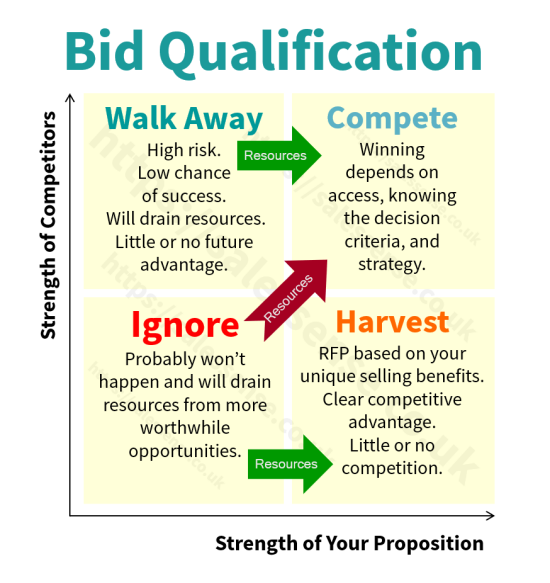The shape of government regulated buying procedures.

There are vast opportunities to sell to local and central governments, government-funded services, and the military that is subject to a government regulated buying process.
The buying process for such requirements is normally highly regulated for the purposes of eliminating fraud, maintaining transparency, and making the best use of public funds.
The initial steps progress in much the same way as for unplanned and planned buying.
There may be RFIs (Requests For Information) or PQQs (Pre Qualification Questionnaires).
Once a requirement has met internal criteria for the initiation of a buying process, the task is normally handed over to a procurement team who are then tasked with running a competition according to the rules of the selected process.
In the EU, procurements can use one of four systems and six procedures:
EU Government Regulated Buying Systems
Tenders
Frameworks
eAuctions
Dynamic Purchasing Systems
EU Government Regulated Buying Procedures
Open
Restricted
Negotiated
Competitive Dialogue
Competitive Procedure with Negotiation
Innovation Partnership
As the UK historically implemented its EU law public procurement obligations through UK regulations (the principal ones being the Public Contracts Regulations 2015 (PCR 2015)), these continue to apply even though the UK has left the EU and the transition period has ended.
For those who compete for business that is subject to strict procurement regulations, it is essential to understand the applicable rules, systems, and procedures.
Outside of the EU and the UK, regulations are different however, most countries in the world do publish the procurement rules under which their governments and public institutions operate.
If you bid for government regulated business, study the rules.
This page describes the current UK Government public procurement policies:
https://www.gov.uk/guidance/public-sector-procurement-policy
Post Brexit UK public procurement overhaul plans:
https://pages.achilles.com/reform-of-public-procurement-law-after-brexit-whitepaper
The Law Reviews - Explore strategic legal analysis in 117 jurisdictions worldwide:
https://thelawreviews.co.uk/countries
Free B2B Sales Training Course Index
Tips for Teaching Yourself
Set clear goals: Start by defining specific and achievable learning goals. Clearly articulate what you want to learn or accomplish through self-teaching. This helps you stay focused and motivated throughout the learning process.
Design a structured plan: Create a structured learning plan that outlines the topics or skills you need to cover, along with a timeline for each. Break down the material into manageable chunks and set milestones to track your progress.
Gather learning resources: Identify and gather high-quality learning resources that align with your goals. These can include books, online courses, tutorials, videos, podcasts, or reputable websites. Utilize a mix of resources to get different perspectives and approaches to the subject matter.
Establish a learning routine: Consistency is key to self-teaching. Set aside dedicated time in your schedule for learning, and stick to it. Whether it's a few minutes each day or longer sessions a few times a week, establish a routine that works for you.
Practice active learning: Engage in active learning techniques to enhance comprehension and retention. Take notes, summarize key concepts in your own words, and create flashcards or mind maps. Actively apply what you learn through practical exercises, projects, or real-life scenarios.
Seek out feedback and evaluation: Look for opportunities to receive feedback on your progress and performance. This can be from peers, mentors, or online communities related to the subject you're learning. Feedback helps you identify areas for improvement and refine your understanding.
Stay motivated and disciplined: Self-teaching requires self-discipline and motivation. Find ways to stay inspired, such as connecting with others who share your interests, joining online forums or study groups, or tracking your progress visually. Celebrate milestones and achievements to keep your motivation levels high.
Embrace a growth mindset: Adopt a growth mindset that embraces challenges, setbacks, and mistakes as opportunities for learning and growth. Embrace the process of self-teaching as a journey of continuous improvement and embrace the learning curve.
Reflect and iterate: Regularly reflect on your learning experience. Assess what strategies or resources have been most effective for you and make adjustments as needed. Be open to trying different approaches or seeking additional resources if you encounter difficulties.
Stay curious and never stop learning: Cultivate a lifelong love of learning. Embrace curiosity and seek out new topics or skills to explore. The process of teaching yourself can extend beyond a specific goal and become a lifelong pursuit of personal and professional development.
Have us help you achieve learning momentum. Join our new scheduled one-hour-a-week professional sales career training course.
If you have the discipline of an autodidact, use our free B2B sales training course, indexed here. This page presents 1.3 of section one, about the government regulated buying process. If you need more, have any of our B2B sales training courses or any element or any combination of elements delivered for groups or individuals through online sales training sessions or one-to-one coaching. Call +44 (0)1392 851500 or email jimm@salessense.co.uk for details.











